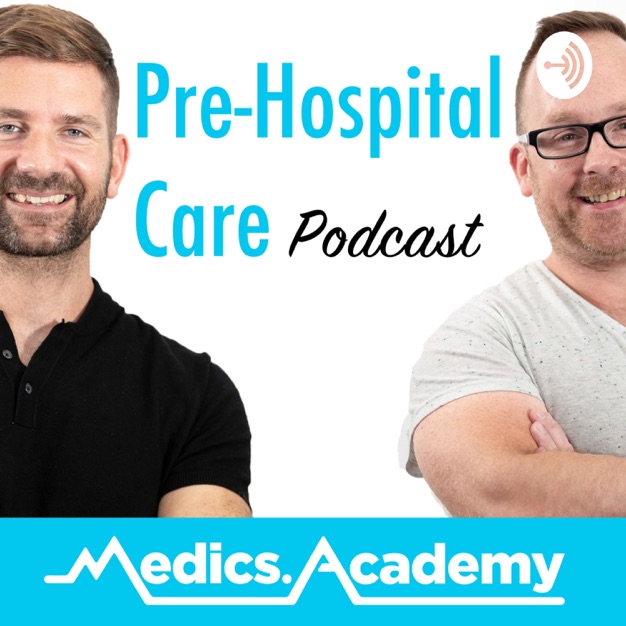
Pre-Hospital Care
Medics Academy
In this episode, we welcome Victoria Lebrec, London Traffic Justice Campaign Coordinator for RoadPeace. Victoria has been fighting for road safety in London since losing her leg after a collision with a skip lorry in 2014. Others have lost limbs on the same section of road since the incident, and it is only one of many places in London where accident rates are disproportionately high. Victoria’s work is focused on raising awareness of the need for improvements for cyclist safety across London.
- 37 minutes 58 secondsIs NATO ready for war? With Tim Hodgetts
In this episode, we delve into NATO’s medical readiness for large-scale conflicts, addressing pressing questions about preparedness and challenges in the face of hybrid and cyber threats. Also, how NATO adapts its strategies to meet these complex needs of contemporary warfare.
We’ll address lessons from recent conflicts—Ukraine, Afghanistan, and Iraq—and how these experiences have shaped NATO’s unified approach to combat medicine. From mass casualty management to the integration of cutting-edge innovations like telemedicine, robotics, and AI, we discuss the systems and technologies that underpin NATO's ability to respond effectively. The importance of collaboration and interoperability takes centre stage as we explore how NATO trains medics and aligns medical equipment across diverse member nations. Additionally, we examine how NATO balances military medical readiness with supporting civilian populations in conflict zones, leveraging partnerships with civilian healthcare systems to enhance preparedness.
Finally, we tackle ethical and humanitarian considerations, shedding light on psychological resilience, the mental health of medical teams, and the challenges of providing care to both allies and adversaries.
To do this I have Tim Hodgetts with me. Tim was the recently serving Surgeon General of the United Kingdom Armed Forces, the Master General of the Army Medical Services, and the elected Chair of the Committee of Chiefs of Military Medical Services in NATO. His clinical background is a Professor of Emergency Medicine amongst many other hats.
Links that Tim mentions in the episode can be found here:
Transferable military medical lessons from the Russo-Ukraine war
https://pubmed.ncbi.nlm.nih.gov/37402486/
The novel 8Ds approach to demand management in Mass Casualty and other situations of extreme demand/capacity mismatch
Frontlines and Lifelines: Collected Poems from an Army Doctor in Crisis and War (English Edition)
https://www.amazon.com/Frontlines-Lifelines-Collected-Doctor-Crisis-ebook/dp/B0DCS1DFMH
This podcast is sponsored by PAX.
Whatever kind of challenge you have to face - with PAX backpacks you are well-prepared. Whether on water, on land or in the air - PAX's versatile, flexible backpacks are perfectly suitable for your requirements and can be used in the most demanding of environments. Equally, PAX bags are built for comfort and rapid access to deliver the right gear at the right time to the right patient. To see more of their innovative designed product range please click here:
20 January 2025, 4:00 am - 59 minutes 19 secondsPart 1: Medico-legal Aspects of PHC - Documentation and Communication with Mark Faulkner
In this episode, we’re diving into a critical topic for all pre-hospital providers: Documentation and Communication—Protecting Patients and Providers.
In the increasingly complex world of pre-hospital care, accurate documentation and effective communication are more than just administrative tasks—they are key to ensuring patient safety, defending clinical decisions, and protecting providers from legal challenges. Every action and decision made in the field must be carefully recorded, as inadequate documentation can expose providers to significant legal risk and impact patient care.
In this episode, we’ll explore best practices for pre-hospital record-keeping, the legal implications of incomplete or inaccurate documentation, and how clear communication during handovers to hospital teams can make or break a case. We’ll also examine real-world case studies, highlighting situations where discrepancies in documentation or poor communication led to legal issues or adverse outcomes.
This podcast is sponsored by PAX.
Whatever kind of challenge you have to face - with PAX backpacks you are well-prepared. Whether on water, on land or in the air - PAX's versatile, flexible backpacks are perfectly suitable for your requirements and can be used in the most demanding of environments. Equally, PAX bags are built for comfort and rapid access to deliver the right gear at the right time to the right patient. To see more of their innovative designed product range please click here:
https://www.pax-bags.com/en/
13 January 2025, 4:00 am - 39 minutes 43 secondsThe Anatomy of Decision Making Under High Pressure Situations
In this episode of the Pre-Hospital Care Podcast, we explore why decision-making is a cornerstone of effective pre-hospital care. Using a compelling case study from a high-pressure environment, we examine how clinicians navigate complex decisions and decisions within decisions.
We dive into key theories of decision-making, including Miller’s Magic Number 7, which highlights the limits of working memory, and heuristics, the mental shortcuts we use under pressure. We also discuss inattention bias—how critical details can be overlooked—and the importance of metacognition in reflecting on and improving decisions.
Discover common pitfalls, such as over-reliance on intuition or cognitive overload, and the emerging role of artificial intelligence as a supportive tool in pre-hospital care decision-making. With AI's potential to analyse data rapidly and provide guidance, how can it complement the human element of judgment and compassion?
Finally, we share practical tools and strategies to navigate decision-making challenges, and how clinicians can make sound, timely, and patient-focused choices in dynamic situations. Join us for this insightful episode as we break down the anatomy of decision-making in pre-hospital care.
More information on the case study of Dan Richards can be found here: https://www.facebook.com/watch/?v=649646908762720
This podcast is sponsored by PAX.
Whatever kind of challenge you have to face - with PAX backpacks you are well-prepared. Whether on water, on land or in the air - PAX's versatile, flexible backpacks are perfectly suitable for your requirements and can be used in the most demanding of environments. Equally, PAX bags are built for comfort and rapid access to deliver the right gear at the right time to the right patient. To see more of their innovative designed product range please click here:
https://www.pax-bags.com/en/
6 January 2025, 5:00 am - 45 minutes 43 secondsSurviving Cardiac Arrest Part 3: Noah and Erran's Story
In this first episode of the new year, we speak with Noah, whose life changed dramatically in 2016. While exercising at school in North London, Noah suffered a cardiac arrest caused by a primary arrhythmia, resulting in ventricular fibrillation. That day brought the adage "it takes a system to save a life" sharply into focus.
Noah shares his firsthand experience of the cardiac arrest, the events leading up to it, and how it has become a defining moment in his life. We are also joined by Noah’s father, Erran, who recounts the sequence of events from his perspective—both on that fateful day in 2016 and throughout the emotional roller coaster of Noah's rehabilitation.
Together, we explore Noah’s life before the incident, what both Noah and Erran remember about the day, and the detailed timeline of events that unfolded. We delve into Noah’s recovery journey, the profound shift in perspectives on life that resulted, and the lessons they have both taken from the experience.
This episode offers a deeply personal insight into resilience, family support, and the critical role of pre-hospital systems in saving lives, along with powerful take-home messages from Noah and Erran.
This podcast is sponsored by PAX.
Whatever kind of challenge you have to face - with PAX backpacks you are well-prepared. Whether on water, on land or in the air - PAX's versatile, flexible backpacks are perfectly suitable for your requirements and can be used in the most demanding of environments. Equally, PAX bags are built for comfort and rapid access to deliver the right gear at the right time to the right patient. To see more of their innovative designed product range please click here:
2 January 2025, 7:38 am - 45 minutes 39 secondsResilience, Loss and Post Traumatic Growth with Keir Rutherford and Lisa Burrell
In this session, we reflect on the experiences, challenges, and growth that define a career in Paramedicine. Paramedics have the privilege of caring for individuals during some of the most vulnerable and difficult moments of their lives—a privilege that carries profound meaning but also significant emotional demands.
This episode explores the essence of resilience: what it truly means, whether our current definitions are sufficient, and how we can better frame it to support those working on the front lines of care. We also examine the cumulative impact of vicarious trauma, the toll of witnessing human suffering over time, and how these experiences shape those in the profession.
Importantly, this conversation is not just about challenges—it’s about growth. We discuss the concept of post-traumatic growth, exploring how adversity and trauma can lead to profound personal transformation and a renewed sense of purpose. Guests Keir Rutherford and Lisa Burrell share their journeys, offering insights into the emotional landscape of emergency care. Happy new year from the PHCP and we will see you in 2025!
30 December 2024, 5:00 am - 25 minutes 30 secondsSurviving Cardiac Arrest Part 2: Zoe Hitchcock's story
In this episode, we speak with Zoe Hitchcock, whose life took a dramatic turn 11 years ago in 2013. While walking along Oxford Street in London, Zoe experienced a cardiac arrest caused by a cardiac myopathy, resulting in ventricular fibrillation. That day, the saying "it takes a system to save a life" became strikingly evident.
Zoe shares her firsthand account of the cardiac arrest, the events leading up to it, and how that moment became a pivotal turning point in her life. We explore what Zoe remembers from that day, the role her husband played in the circumstances leading her to Oxford Street, and the critical challenges faced by the pre-hospital team on the pavement.
We’ll also discuss the involvement of the HEMS team, her transfer to St. Mary’s, and the recovery process that followed. Zoe reflects on how her perspective on life and family has shifted since that day and shares key take-home messages for listeners.
This conversation highlights the resilience of the human spirit and the importance of pre-hospital care systems in saving lives. For more insights, listen to Zoe’s original account in the linked episode: S02E01 - Zoe Hitchcock, Cardiac Arrest Survivor.
This podcast is sponsored by PAX.
Whatever kind of challenge you have to face - with PAX backpacks you are well-prepared. Whether on water, on land or in the air - PAX's versatile, flexible backpacks are perfectly suitable for your requirements and can be used in the most demanding of environments. Equally, PAX bags are built for comfort and rapid access to deliver the right gear at the right time to the right patient. To see more of their innovative designed product range please click here:
26 December 2024, 5:00 am - 1 hour 32 secondsReflections on 2024 with the PHCP
As we wrap up 2024, this special year-in-review episode of the Pre-Hospital Care Podcast feels particularly personal. It’s been a year full of challenges, breakthroughs, and moments that tested and redefined what staff can achieve.
This episode isn’t just a summary of achievements or struggles—it’s about the real stories and the people behind them. From reflections to fresh approaches to training to the emotional toll on the workforce, 2024 has been a journey of resilience and adaptation.
For us, this is a chance to celebrate the human side of pre-hospital care—the ingenuity, the teamwork, and the quiet but profound moments of care that often go unseen. It’s also a moment to acknowledge that while progress has been made, there’s still so much work to do. I hope this episode offers you a meaningful perspective on 2024 from the hosts at the PHCP.
23 December 2024, 4:00 am - 39 minutes 57 secondsSurviving Cardiac Arrest Part 1: Paul Swindell and Sudden Cardiac Arrest UK
In this episode, we explore the deeply personal and often overlooked journey of cardiac arrest recovery. Joining us is Paul Swindell, a cardiac arrest survivor, advocate, and co-founder of Sudden Cardiac Arrest UK.
In 2014, Paul’s life changed in an instant when he experienced a sudden cardiac arrest. While he was fortunate to survive, his recovery brought challenges that went beyond the physical. Today, we’ll delve into Paul’s experience, exploring the physical, emotional, and psychological hurdles he faced. We’ll discuss the role of pre-hospital care, gaps in support systems for survivors, and the mission of Sudden Cardiac Arrest UK to provide a sense of community for others navigating this journey. You can find their website here: https://suddencardiacarrestuk.org/
The 10 Years Together Event can be found here:
https://suddencardiacarrestuk.org/10-years-together/
This podcast is sponsored by Wel Medical: Wel Medical, is a leading provider of life-saving medical equipment. Known for their cutting-edge defibrillators, including the widely trusted iPAD SP1, Wel Medical is dedicated to making emergency tools accessible in public spaces, schools, and businesses. Their defibrillators are designed for ease of use, with clear voice prompts and visual aids, empowering anyone to help in a cardiac emergency. Wel Medical also offers a comprehensive range of first aid supplies and provides expert training, ensuring that organizations are well-prepared for any emergency. With a strong focus on customer support, they are passionate about helping people feel confident in saving lives. Tune in to learn how Wel Medical is making a difference in emergency preparedness.
For more information, visit welmedical.com and discover how you can make your environment and workplace safer today.
This podcast is sponsored by PAX.
Whatever kind of challenge you have to face - with PAX backpacks you are well-prepared. Whether on water, on land or in the air - PAX's versatile, flexible backpacks are perfectly suitable for your requirements and can be used in the most demanding of environments. Equally, PAX bags are built for comfort and rapid access to deliver the right gear at the right time to the right patient. To see more of their innovative designed product range please click here:
https://www.pax-bags.com/en/
18 December 2024, 4:00 am - 54 minutes 24 secondsBeyond the Sirens: The Unique and Evolving Nature of Paramedicine with Will Broughton
In this episode, we explore Professor Will Broughton’s inaugural lecture, Beyond the Sirens: The Unique and Evolving Nature of Paramedicine. As the UK’s second-ever “Paramedic Chair,” Professor Broughton challenges the outdated perception of paramedics as mere “ambulance drivers,” instead highlighting the profession’s evolution into one of sophisticated clinical expertise.
He discusses the broadening role of paramedics, from complex medical interventions to their increasing involvement in community health. His insights shed light on how paramedicine has progressed since the days of "urban mobile resuscitation" in 1976, and the future potential of the field.
Tune in as Professor Broughton shares his journey from his early experiences with the Red Cross to founding the UK’s first student paramedic conference, and how his time with the London Ambulance Service prepared him for his roles in education and research. We also hear his thoughts on the shifting gender dynamics within paramedicine and how technology will shape its future.
In a lighthearted moment, Professor Broughton recounts an unexpected New Year’s Eve shift where he found himself acting as an emergency plumber, illustrating the flexibility paramedics must now possess. Additionally, he reflects on the importance of asking, “What is our brand?” and the key research areas that will continue to propel Paramedicine forward.
16 December 2024, 4:00 am - 35 minutes 56 secondsViolence against Paramedics with Dr Justin Mausz
In this conversation, we will examine the prevalence, causes, types and critical issues of violence against paramedics. Justin Mausz shares his insights on the growing prevalence of violence in the pre-hospital environment, examining the kinds of violence paramedics face, including verbal, physical, and emotional abuse. He highlights the contributing factors and offers practical strategies for mitigating these risks, drawing from his extensive research. We also explore how to protect paramedics while maintaining care delivery in high-risk environments.
To do this I am joined by Dr Justin Mausz. Justin is an accomplished professional in paramedicine and healthcare research. He serves as a research scientist at the University of Toronto, with a focus on improving paramedic education and patient care systems. Justin’s research interests include clinical decision-making, prehospital care, and performance optimisation for emergency services. A dedicated academic, he contributes to advancing paramedicine by combining his practical experience as a former paramedic with rigorous scholarly research to drive improvements in healthcare delivery. His work has significantly impacted the academic and practical fields of pre-hospital care. You can find some of his research here:
https://pubmed.ncbi.nlm.nih.gov/36928257/
This podcast is sponsored by PAX.
Whatever kind of challenge you have to face - with PAX backpacks you are well-prepared. Whether on water, on land or in the air - PAX's versatile, flexible backpacks are perfectly suitable for your requirements and can be used in the most demanding of environments. Equally, PAX bags are built for comfort and rapid access to deliver the right gear at the right time to the right patient. To see more of their innovative designed product range please click here:
https://www.pax-bags.com/en/
9 December 2024, 4:00 am - 50 minutes 27 secondsThe Successes and Challenges of Major Trauma Networks in the UK with Ash Vasireddy
In this episode, we're diving into the critical topic of major trauma networks in the UK. These networks have revolutionised trauma care, significantly improving patient outcomes since their inception. We'll explore the positives and challenges faced by these networks, with insights into their impact on patient survival rates, and the integration of advanced technologies.
To do this I am joined by Dr Ash Vasireddy, Ash is a Trauma Surgeon at King’s College Hospital. He is also works as a HEMS (Air Ambulance) Pre-hospital Care Doctor. As part of the trauma lead at Kings College Ash also ensures the MTCs function effectively from an Orthopaedic perspective and fosters relationships with network partners in facilitating orthopaedic trauma care. Please find an informative review on Trauma Networks here: https://www.ncbi.nlm.nih.gov/pmc/articles/PMC7732139/
This podcast is sponsored by PAX.
Whatever kind of challenge you have to face - with PAX backpacks you are well-prepared. Whether on water, on land or in the air - PAX's versatile, flexible backpacks are perfectly suitable for your requirements and can be used in the most demanding of environments. Equally, PAX bags are built for comfort and rapid access to deliver the right gear at the right time to the right patient. To see more of their innovative designed product range please click here:
2 December 2024, 4:00 am - More Episodes? Get the App
Your feedback is valuable to us. Should you encounter any bugs, glitches, lack of functionality or other problems, please email us on [email protected] or join Moon.FM Telegram Group where you can talk directly to the dev team who are happy to answer any queries.
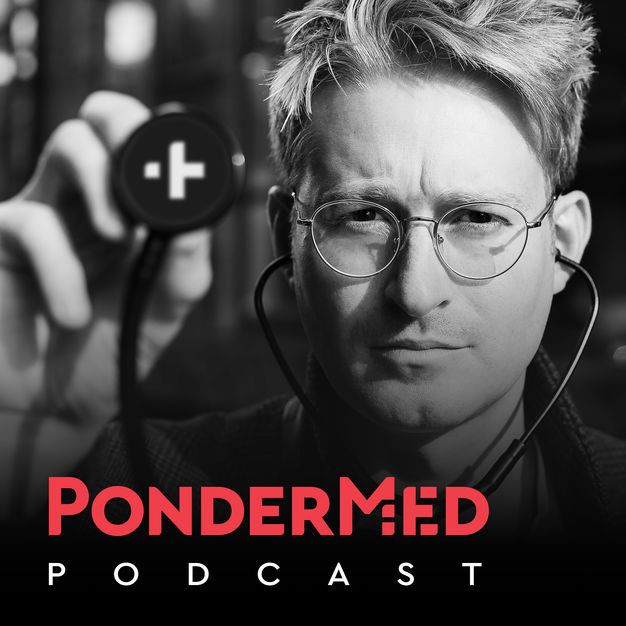 PonderMed
PonderMed
 WEMcast
WEMcast
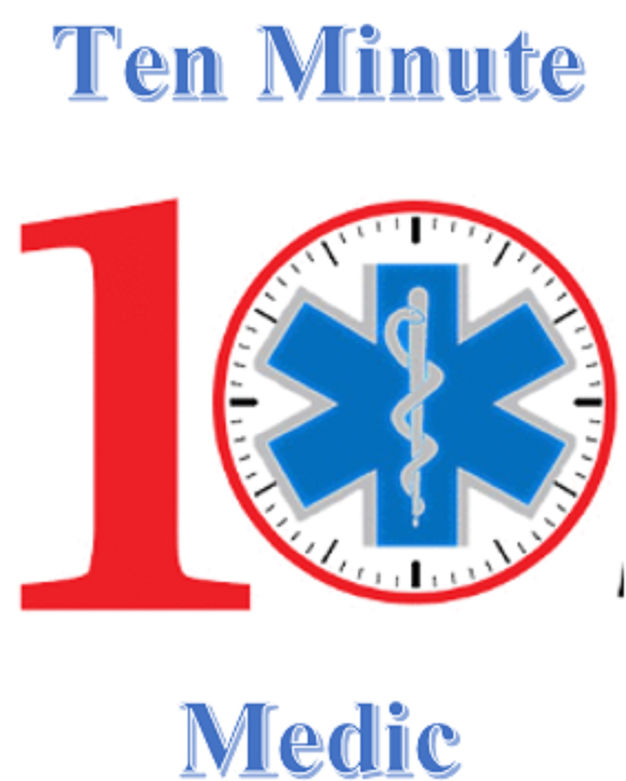 Ten Minute Medic
Ten Minute Medic
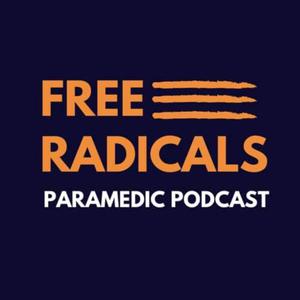 Free Radicals Paramedic Podcast
Free Radicals Paramedic Podcast
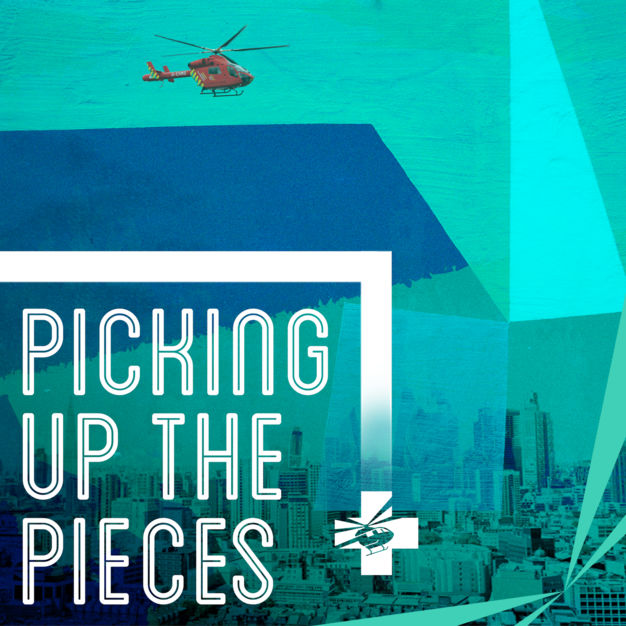 Picking Up The Pieces
Picking Up The Pieces
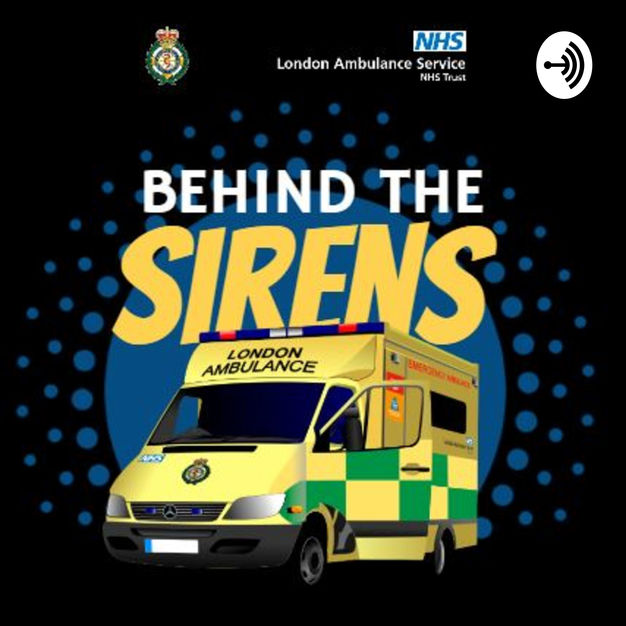 Behind the Sirens
Behind the Sirens